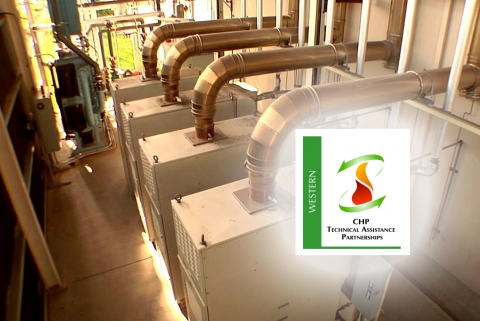For over 10 years, CSE led efforts for the U.S. Department of Energy to accelerate wider development of combined heat and power (CHP) energy technologies in Arizona, California, Hawaii and Nevada.
Also known as cogeneration, CHP produces industrial electricity and thermal energy on-site, adding to or replacing power provided from a local utility and fuel burned in a boiler or furnace. CHP systems can operate independently from the grid, provide power and thermal energy during outages and offer significant cost savings.
CSE expanded the CHP market by providing technical assistance and education to a wide spectrum of stakeholders, including commercial and industrial end users, state decision-makers, electric and gas utilities, trade associations and nonprofit organizations. Efforts focused on evaluating the economics, reliability and environmental value of proposed CHP and microgrid energy systems.

Program at a Glance
Program Goals
Promoted and assisted in transforming the market for combined heat and power technologies
CSE's Role
Program administrator for Western CHP TAP covering Arizona, California, Hawaii and Nevada
Technologies
Key Partners
DE Solutions, Valley Consulting
State Policies Supported
AB 970, SB 412, AB 1150, SB 861, Accelerating Industrial Energy Efficiency (Executive Order 13624), AB 1613, SB 1339, SB 1383, Bioenergy Market Adjusting Tariff (BioMAT) and Fuel Cell NEM
Impact Statement
Accelerated use of CHP and microgrid energy technologies to reduce fossil fuel use, provide energy resiliency and curb greenhouse gas emissions.

